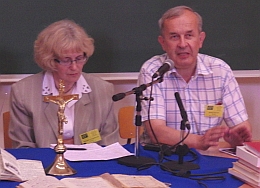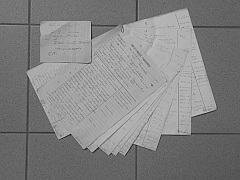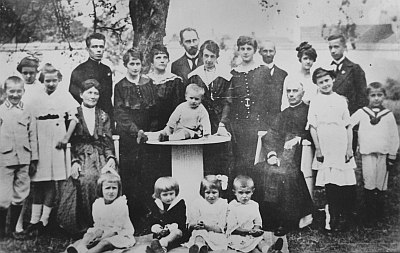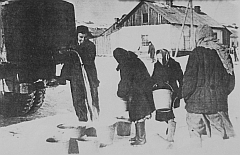Testimony on communist persecution of UGCC clergy given at Catholic congress in Hungary

![]()
 A delegation of seven people representing the Ukrainian Greek Catholic Church (UGCC) is taking part in the International Congress of Eastern and Western Catholic Churches of Europe, which is being held from July 17-22 in the Hungarian city of Nyíregyháza. In view of the congress’s topic, “The Parish – A Place of Hope,” the preservation of the church and faith through hope was discussed.
A delegation of seven people representing the Ukrainian Greek Catholic Church (UGCC) is taking part in the International Congress of Eastern and Western Catholic Churches of Europe, which is being held from July 17-22 in the Hungarian city of Nyíregyháza. In view of the congress’s topic, “The Parish – A Place of Hope,” the preservation of the church and faith through hope was discussed.
During the congress, participants reported on the history of the persecution of the Roman and Greek Catholic Churches of Eastern Europe and shared experiences of survival in times of persecution.
The Franciscan monk Perehrin explained how the socialist regime tried in the Czech Republic, Slovenia, and East Germany to create an artificial state church to counter the Roman Catholic one and how difficult it was to maintain the true church against all the challenges of the communist times, when a whole ideology and struggle with the church was in place, when the government wanted to appoint its own bishops for its own churches and the real ones were persecuted.
 The experience of survival and preservation, which the Catholic Church of both the Eastern and Western rites had during the persecution, becomes relevant again today because of the new challenges posed by the secularized society where there are fewer and fewer Christians.
The experience of survival and preservation, which the Catholic Church of both the Eastern and Western rites had during the persecution, becomes relevant again today because of the new challenges posed by the secularized society where there are fewer and fewer Christians.
The Ukrainian Greek Catholic Church in this matter is considered a martyr church, because in communist times it was doomed not only to persecution but also to total destruction, so only carefully thought out and organized work in the underground, the devotion of the clergy to the church, and work with young people with priestly vocations rescued and preserved the church, which now has more than 7 million faithful in Ukraine and the world.
 A member of the Ukrainian delegation, Lesia Krypiakevych – daughter of Father Artemii Tsehelsky, who came from the Tsehelsky priestly family – gave an account of the deliberate destruction of the UGCC clergy by the communist regime to the 150 participants of the congress. She shared her family’s history during these terrible years. This testimony is not found in historical documents, but is consists of real memories, supplemented by photographs, original summons from the NKVD, and protocols of searches. According to Krypiakevych, she shared these stories so she could show the UGCC’s invaluable experience of suffering and resurrection.
A member of the Ukrainian delegation, Lesia Krypiakevych – daughter of Father Artemii Tsehelsky, who came from the Tsehelsky priestly family – gave an account of the deliberate destruction of the UGCC clergy by the communist regime to the 150 participants of the congress. She shared her family’s history during these terrible years. This testimony is not found in historical documents, but is consists of real memories, supplemented by photographs, original summons from the NKVD, and protocols of searches. According to Krypiakevych, she shared these stories so she could show the UGCC’s invaluable experience of suffering and resurrection.
 Her testimony began with the words of Pope Benedict XVI: “The one who has hope lives differently” to stress the point that hope was abundant in the underground.
Her testimony began with the words of Pope Benedict XVI: “The one who has hope lives differently” to stress the point that hope was abundant in the underground.









